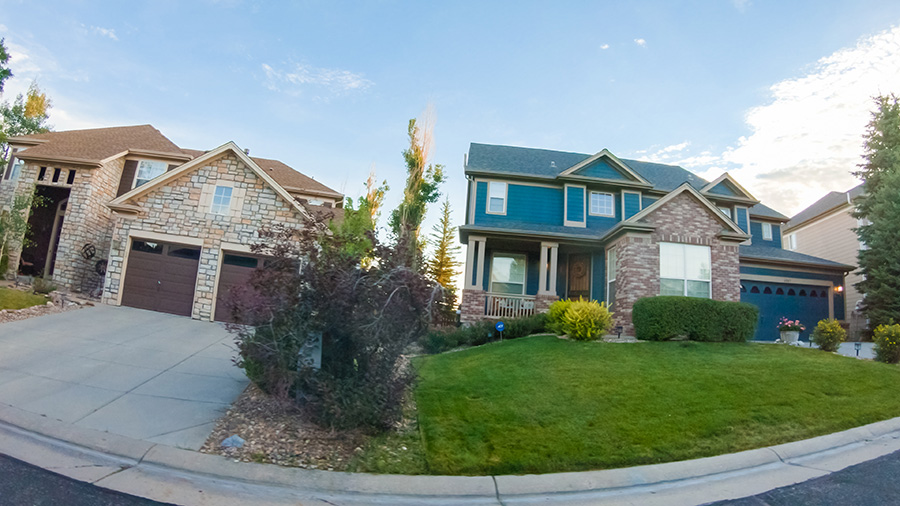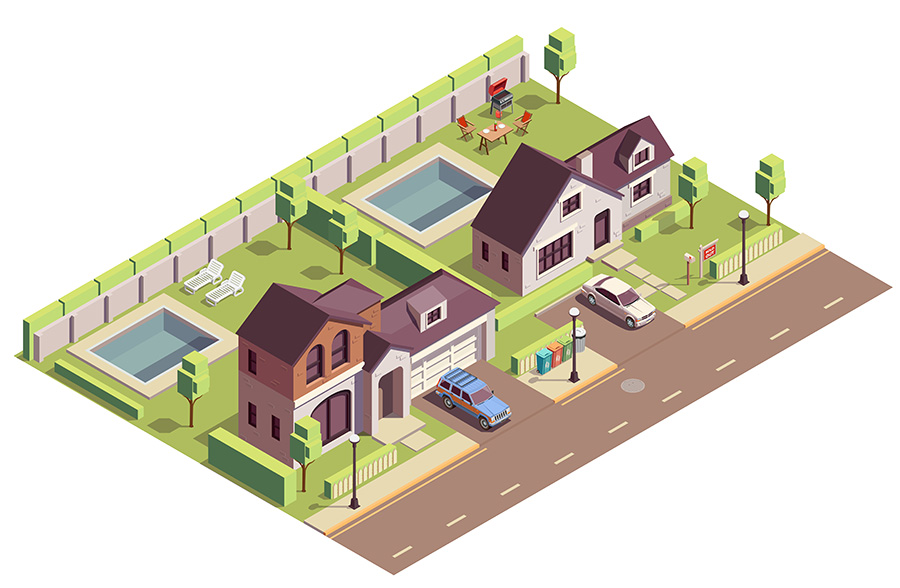Top blog articles
People who own condos or sometimes even single-family homes in certain communities have to pay homeowners association fees or HOA fees. These monthly costs take care of routine tasks such as keeping shared areas clean and in good shape. If you own a condo, it’s important to factor in these fees when you’re figuring out your monthly expenses.
What’s a Homeowners Association Fee (HOA fee)?
An HOA fee is the cost that certain homeowners need to pay every month to their homeowners association (HOA). These fees help the association take care of and improve properties. Condo owners almost always have to pay HOA fees. But sometimes, people in neighborhoods with single-family homes also need to pay for them. HOA fees can also be called “common charges” or “maintenance charges”. When people buy these properties, they automatically become members of the association and have to pay monthly fees.
The fees include maintaining hallways, elevators, lobbies, and parking lots. They also usually cover services such as snow removal, gardening, lawn care, yard landscaping, and fixing any damage to shared spaces.
What do homeowners association fees cover?
HOA fees usually take care of looking after shared places such as lobbies, patios, gardens, lawns, swimming pools, tennis courts, fitness centers, clubhouses, and elevators. Sometimes, they also include everyday utilities such as water, sewer, and garbage pickup and disposal. If the association’s saved money (reserve funds) isn’t enough for a big repair, such as a new elevator or roof replacement, they might ask for extra payments, called special assessments, once in a while.
Keep in mind that the fees depend a lot on how many amenities the HOA housing has. And, they might be influenced by external factors such as the local economy, the type of neighborhood it is, or the city.
For instance, in cities where the cost of living is high, such as New York City, simple upkeep can be pricier compared to cities with lower living costs. This is due to higher minimum wages, electricity expenses, and/or taxes. Additionally, HOA fees in condominiums may surpass those in single-family houses because they cover shared expenses such as electricity, heating, and cooling in common areas.
Keep in mind that HOAs must buy liability insurance to cover any injuries on community property. However, homeowners still have to get their own homeowners insurance policy.
How does the HOA location affect the fees?

Where you live affects how much you pay for HOA fees. The cost can vary a lot based on local laws and the area’s living expenses. In Tampa Bay, Florida, for example, high-rise condo owners are feeling the pinch because of a new law that requires home inspections and the assurance that the HOA has enough money for repairs.
HOA fees also go up with inflation. For example, Miami had the highest inflation rate in 2022 among all metro areas. Phoenix, Seattle, Atlanta, and Philadelphia were next in line, followed by New York, Baltimore, Detroit, St. Louis, and Chicago. In these places, HOA fees have gone up significantly due to the high inflation.
What happens if an HOA member doesn’t pay the fees?
It’s important for homeowners to be aware of the HOA’s rules and regulations regarding fee payments, as well as the potential consequences of non-payment.
If someone in the community doesn’t pay their HOA fees, it can cause problems for everyone. The common areas might not be well-maintained, and other members may have to pay extra to cover the costs.
More importantly, the HOA can take different actions against those who don’t pay, such as charging late fees or even taking legal steps, depending on the agreement between the HOA and the homeowner.
Here are some of the steps the HOA might take to enforce rules regarding monthly HOA fees.
- Late fees: They can charge extra money for overdue payments, and this extra amount can increase over time.
- Loss of privileges: In some cases, the HOA can stop the homeowner from using certain services or areas in the community, such as common areas or special events, until they pay their fees.
- Property lien: If the homeowner still doesn’t pay, the HOA can put a legal claim on their property. This can make it hard for the homeowner to sell or refinance their property until they pay what they owe.
- Legal steps: The HOA might decide to take the homeowner to court to get the money they owe. This could involve filing a lawsuit and getting a court judgment.
- Foreclosure: In really serious cases, especially if the homeowner owes a lot of money for a long time, the HOA might be allowed to take ownership of the homeowner’s property to cover the debt.
How much homeowners association fees can you expect, on average?
The average HOA fee varies depending on the type of property, the neighborhood, the location, and the services offered. HOA fees typically fall within the range of $200 to $400 per month. If you are moving into a HOA community, it’s best to check the specific fees beforehand, as they can significantly impact your overall housing costs.
Is the HOA fees tax deductible in the United States?
IRS rules pertaining to HOA fees can be tricky. However, as a general rule, if your property in the community is your main home or primary residence, HOA fees usually aren’t deductible. However, if you rent out the property, you might be able to deduct HOA dues as a rental expense. Keep in mind that HOA special assessments usually aren’t deductible.
Read more: Are HOA fees worth it?
Is there a downside to living in an HOA community?

The main challenge people face with HOA communities is the fees, which can vary from a few hundred to several thousand dollars each month based on the property type and amenities. Adding monthly fees to mortgage payments and other expenses, such as utilities, can financially strain property owners.
Another drawback of HOA communities lies in the potential for special assessments. These special assessments can manifest as one-time charges or ongoing fees, adding to the regular dues homeowners already pay. The issue arises in the considerable discretion granted to HOA boards or the management company to impose assessments without necessarily polling or notifying residents in advance. Although some HOAs may adopt better practices by passing resolutions and informing the community, the potential lack of transparency raises concerns about the financial unpredictability homeowners might face within HOA communities.
What’s more, if the reserve fund, meant for unexpected property repairs, is not managed properly, owners may encounter even higher fees.
HOAs also establish rules concerning parking and the use of common areas. In neighborhoods with single-family homes, HOAs may dictate rules about house painting frequency, acceptable fence types, landscaping maintenance requirements, and other related matters. This can sometimes lead to disagreements and legal challenges for both the associations and homeowners.
What should you consider before shifting to an HOA community?
Thinking about buying a home in an HOA? Check out the fees and rules first. You can usually find the fee details in the property listing. Furthermore, ask for records of past board meetings to see fee changes and rules. Also, look into the HOA rules, covenants, conditions, and restrictions (CC&Rs) to understand how they might affect you.
Here are some questions to ask before moving to an HOA community.
- How often have the fees gone up recently?
- What do the HOA fees cover, and what don’t they cover?
- Does the HOA have money saved for big repairs? How much?
- Have they charged special assessments before? How much, why, and how often?
Knowing these details can help you figure out if the HOA is well-prepared for future costs or if the fees might increase.
Last thoughts
Homeowners association fees are regular monthly payments collected by homeowners associations from property owners. These fees are standard practice for most acquired condominiums, apartments, and planned communities. Interestingly, even certain neighborhoods comprising single-family homes implement HOA fees. The funds from these fees cover various expenses, including amenities, property maintenance, and repairs. Remember that if you are purchasing a home in an HOA community, the fees will be a significant part of your monthly expenditure.









